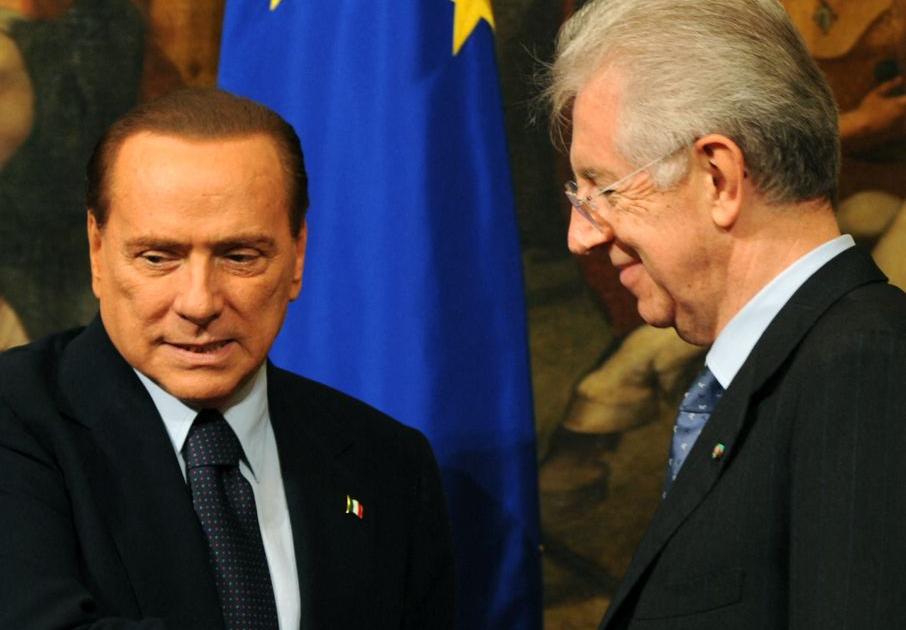Enlarge image
Britain's new Prime Minister Liz Truss: People in the financial markets weren't so enthusiastic about her budget plans
Photo: GEOFF CADDICK / AFP
At the moment there is occasional talk of a turning point in time.
Which always makes you think of Olaf Scholz and the consequences of the war in Ukraine for our Bundeswehr.
Britain's new prime minister, Liz Truss, has been experiencing in a completely different way what such a real turning point means these days - since she, like Margaret Thatcher once, hopelessly and on credit, announced that she would cut taxes because it supposedly promoted growth and thus herself fund.
And she wants to go back to basically letting the markets play.
Just as it was common practice in the Thatcher era, when this very conservative understanding of the economy was the dominant economic policy dogma worldwide for decades.
Coupled with a lot of scolding at the state - and celebrated by business bosses and economists, as well as by enthusiastic people on the financial markets.
It's just that the people on the financial markets didn't react so enthusiastically to Ms. Truss' budget plans from last week - they reacted in panic.
breathtaking.
The pound plummeted so much that some are already seeing the central bank intervene to save the currency.
Again and again the conservative agenda
A change?
Is she.
The shock gives an idea of how much times have changed – even if the financial markets are allergic to Thatcher recipes.
Also because they don't make many friends among economists anymore.
An alarm, perhaps, for all those who, thanks to the return of inflation and permanent government bailouts, now seem to see the time has come to once again praise the letting of market forces.
The return of such approaches could have a lot to do with the fact that there are noticeable price increases again.
After all, Thatcher and Ronald Reagan also came to power as supposed saviors in the inflationary crisis of the 1970s.
And after all, according to old teaching, the main pulls are ruthless cuts in government spending - and of course higher interest rates.
conservative agenda.
That doesn't just seem to have animated Liz Truss and her Treasury Secretary, who are presenting the nostalgia thing so enchantingly.
The new leadership of the influential OECD also seems inclined.
Its conservative boss Mathias Cormann, against the protests of world-renowned experts such as Joe Stiglitz, Barry Eichengreen, Dani Rodrik and Adam Tooze (the author of this column is one of the protesters), demoted the very internal unit that had been trying for a few years to to replace the failed old models of thought and urgently to find completely new answers to climate catastrophes and globalization crises.
The environment of our Federal Finance Minister Christian Lindner also seems inclined, from which recently came a strategy paper that, out of sheer praise of old supply-side politics and ordoliberal principles, reads a bit as if an employee had found a paper from 1982 in a crypt of the ministry;
at that time something like that became hip with us too.
As if the economy is not making as much profit today as it has never done before;
which speaks against the fact that our problems come so significantly from an insufficient (profit) environment for companies.
Suddenly people are whispering again that the state can't do everything.
Or that we already spend so much on social issues anyway.
And the many aids against corona and energy crises are a sign of a fully comprehensive mentality.
As if this is what pandemic and war are about.
Of course, there is always something to criticize about those rescue operations and new state tasks that have arisen after the failure of the market-liberal worldview.
And of course it would be good if the state didn't have to save so much.
But there is a good reason for this: usually something has actually gone wrong in the free economy and financial world.
If governments and central banks intervened in the financial crisis in 2007/08, then yes, it was because the financial world was on the verge of collapse, i.e. the markets were no longer functioning - and letting things run like they did in the 1930s was very likely to trigger a depression with mass unemployment would have.
The same was true of the euro crisis – in which panic and speculation triggered a downward spiral that was only stopped by ECB boss Mario Draghi's unconditional rescue promise.
Attention: do not confuse the fire brigade with the arsonists.
The fact that such crises take on a life of their own is a market malfunction that could only be remedied by fairly major reforms to the financial system.
Not through laissez-faire.
That was the problem.
The list can be extended: It is absurd to believe that it would not have ended in an even greater disaster if the government and central banks had not massively intervened after the corona pandemic was declared.
Just like now, when after some back and forth even in Germany the idea has matured that a war-related energy price crisis should not be interpreted as a nice signal from the markets to save energy - but as an unbearable burden;
and the government has finally decided on a gas price brake as the best idea for a long time.
Sort of like Liz Truss herself does.
There is no market prayer
Doesn't help if such actions are piling up in these times of several major crises.
And it doesn't get any better if you act as if we could have done without even one of these major rescues without the mega-crisis blowing up in our faces.
Or to save and even nationalize corporations like Commerzbank or Uniper that are reeling in times of need.
In the case of relevant crashes, corona shocks or the consequences of war, the original problem is that the economy cannot absorb such slumps on its own.
There is no market prayer.
There is a good reason why Liz Truss' budget ideas find so few supporters: Since Thatcher's time, it has simply been shown that the bet to lower taxes on credit and thus create so much growth that the state still has a lot to do bring in more tax revenue.
What Reagan adviser Arthur Laffer once boldly claimed - and occasionally German FDP bosses still do.
As a rule, after such tax cuts, there is more debt than economic power.
Markets alone will neither stop the climate crisis nor suddenly provide better schools or clinics and more skilled workers.
Or catch everyone who has become unemployed as a result of globalization shocks or new technologies.
It just needs help.
The question is rather when and how exactly they should look like.
Not that it might be a good idea to simply revive long-failed dogmas.
Just like Mrs. Truss is trying to do.








/cloudfront-eu-central-1.images.arcpublishing.com/prisa/RLVRE36BJ333YNEQ2LG6XMIQSY.jpg)